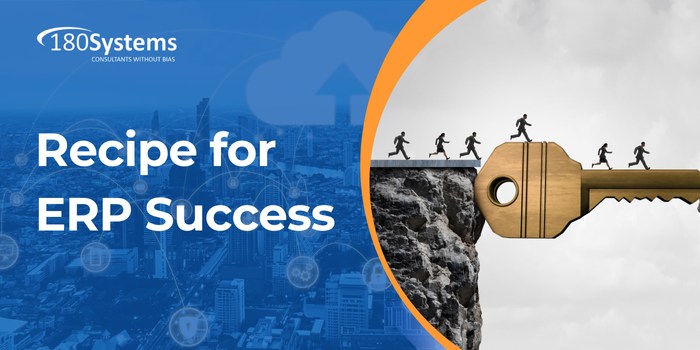1. Define project objectives and don’t forget them.
2. Confirm critical success factors and the KPI’s that measure attainment. Decide which goal KPI’s will determine project success. The target KPI’s become the goalposts for the implementation and a celebration is warranted when you get a goal.
3. Define roles and responsibilities including approximate % of time required for:
- Steering committee
- Project sponsor
- Project manager
- Core team leads who are business process leaders by department
- Subject matter experts who assist core team leads as needed
- Cross functional leads for data migration, change management and training
- Assign your A team to the roles and make sure they have enough time to do the work by offloading some of their day-to-day responsibilities.
- Review (and update) the vendor/implementer’s project schedule for reasonability including:
- All tasks are included
- Both vendor and client resources are identified
- Sufficient time is allocated to tasks.
- Plan includes dependencies
- Client and vendor resources are allocated and are not overbooked
- Ensure that a critical path and milestones have been included
- Ensure there is buffer time for unexpected delays.
- Monitor the schedule including comparing budget to actual + estimated time and cost to complete.
- Identify risks, their probability, impact and how to mitigate them. There are always risks and it’s better to nip it in the bud before it has a negative impact.
- Evaluate the need for change management strategies based on expected resistance to change. But even if it does not appear that there will be resistance, you should still do the following:
- Establish a communication lead and plan to keep people informed
- Obtain feedback by personal conversations and by anonymous surveys
- Flag major gaps between current and new business processes,and discuss impact of these changes with employees who will need to make major changes to the way they work.
- Work with HR to identify any role changes and potential impact of implementation on key employees.
- Meet with the core team and steering committee on a regular basis and provide status updates.
- Setup and monitor an end user training plan.
- Don’t forget about the KPI’s that measure attainment of CSF’s.
- Make sure the design work:
- Includes active involvement of core team leads
- Includes all requirements in scope
- Avoids customizations as much as possible
- Eliminates manual processes
- Includes documentation of the TO-BE business process
- Covers all core business processes
- Don’t underestimate the work involved for conversion and integration. You need to assign resource leads for each department to complete the work including testing and validation.
- Be prepared to test the crap out of the new system and have test scripts for all the known scenarios of your business processes.
- Develop a cutover checklist to go-live
Celebrate
Celebrate a successful implementation with your team, who have worked hard on this project and likely have made personal sacrifices in the process.
Why Work with Independent ERP Consultants?
At 180 Systems, we are independent ERP selection consultants and do not sell or implement any product or accept any compensation from vendors or implementers for our advice or services. Our only goal is to help you choose the right system and optimize your ERP investment.
Contact 180 Systems to learn more about:
-
ERP budgeting and cost analysis
-
ERP selection strategy
-
ERP project advisory and RFP support

